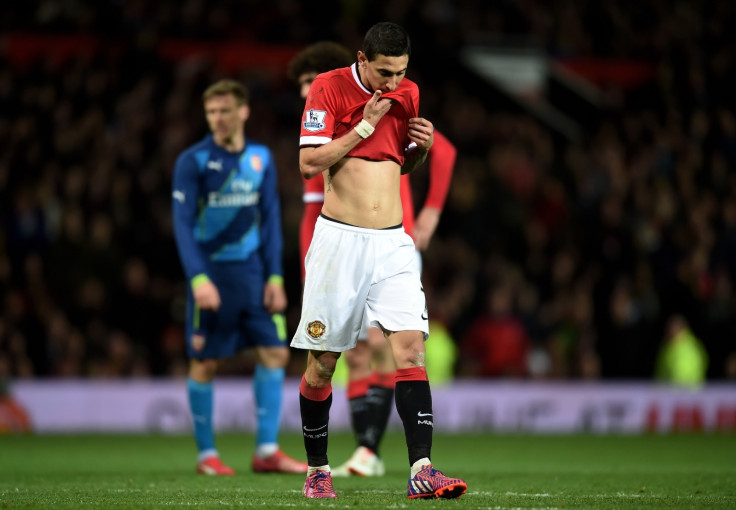Signed to sell shirts? Former translator reveals two reasons why Angel Di Maria left Manchester United
KEY POINTS
- Gomes also said United "lost interest in football" after Sir Alex Ferguson retired in 2013.
- Di Maria left the Premier League giants for PSG a year after joining them in 2014.
Argentine international Angel Di Maria left Manchester United after feeling lonely and thinking the club signed him to "sell shirts", according to the club's former translator.
Debora Gomes worked with Di Maria when the former Benfica man left Real Madrid and made a switch to Old Trafford for a then British record fee of £59.7m ($78.7m) in 2014. The Guardian reported the South American was earning £280,000-a-week ($369124 per week) at Old Trafford.
Gomes claims Di Maria felt United signed him to sell shirts and not to help the team on the pitch win silverware.
"I noticed a lot. So much so that I had the opportunity to talk to him. And he was unhappy at the club," Gomes told Esporte Interativo, as quoted by the Mirror.
"Firstly, he couldn't communicate with anyone. And second because he realised the club bought him not because the club thought 'oh, he will bring titles to us because he is a good player.' No. Because they simply wanted to sell his shirts.
"This I heard inside the club, the people talking. 'Di Maria sells T-shirts, so let's buy him'. So he was not happy."
After failing to impress under former United manager Louis van Gaal, Di Maria left the 20-time English champions and completed a switch to Paris Saint-Germain in 2015.
Gomes also stressed that United "lost interest in football" after Sir Alex Ferguson retired in 2013. Since the Scot stepped down from his post at Old Trafford, the Red Devils have parted ways with two managers, David Moyes and Van Gaal. Jose Mourinho is currently the man in charge at United and won the EFL Cup and the Europa League in his debut season.
"Then I realised, after Sir Alex Ferguson left the club, the club lost interest in football. It's money, money, money. It's making money and that's it," Gomes stressed.
"So the players, when they try and decide who to buy, they will meticulously say: 'what will bring more money?' They are not thinking of bringing joy to the fans. They are thinking of selling."























